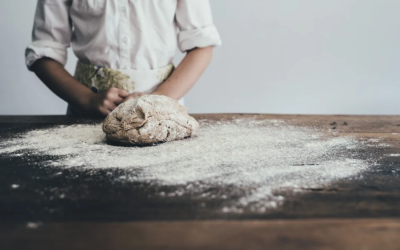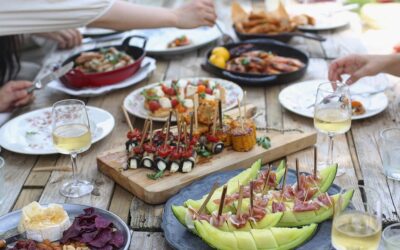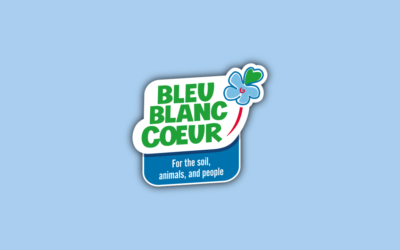A few weeks ago Bleu-Blanc-Coeur organized the third session of the virtual One Health 2020 congress, with in total more than 2 000 connected attendees from 36 countries, 26 speakers with scientists’ experts, committed breeders, catering professionals and especially lots of constructive ideas shared. Check out a summary if you missed it!
The One Health concept (for one global health) has been observed under different perspectives, all highlighting the importance of agricultural practices to achieve quality food that respects the health of soils, animals, and people. On this third session we approached a more sociological angle thanks to the presence of Claude FISCHLER (director of research in sociology at the CNRS : French National Center of Scientific Research), supporting at different times the importance of the sensory and social dimensions of food products. As pointed out by the starred chef Thierry MARX, guest of our round table, the taste and pleasure felt are decisive for consumers to adhere to a product and return to buy it. Pleasure motivates our behavior every day, including our eating habits
When Vitamin B12 turns everything upside down
Brain and nutrition, a vast area of study on which is working Joe HIBBELN (former director of Nutritional Neurosciences Department at the National Institute of health – NIH), who was on live from the United States.
Understanding eating behaviors is complex, and it is not just the quest for pleasure that is involved. He presented the results of a study that showed a link between nutrition and suicidal tendencies in adolescents’ population. In fact, some of us would produce a less efficient transport molecule to drive vitamin B12 in our cells. Failure to absorb vitamin B12 has also been identified as a possible cause of dementia in older people. Vitamin B12 is also and above all indispensable for cell renewal, and therefore for our survival.
However, none of us is capable to produce it, it is created by bacteria that help in the digestion of ruminants and is then found in the products and co-products of these animals (beef as well as milk and its derivatives). We therefore need the bacteria to create this micronutrient which is essential to us and which is collected thanks to animal products. Once in our bodies, the vitamin B12 acts with synergy with another vitamin, the vitamin B9, that we find this time in plants (especially leafy vegetables). Pierre Weill, co-president of the Bleu-Blanc-Coeur association, highlighted with this demonstration how much humans are interconnected with other organisms and microorganism in the biosphere to ensure their survival.
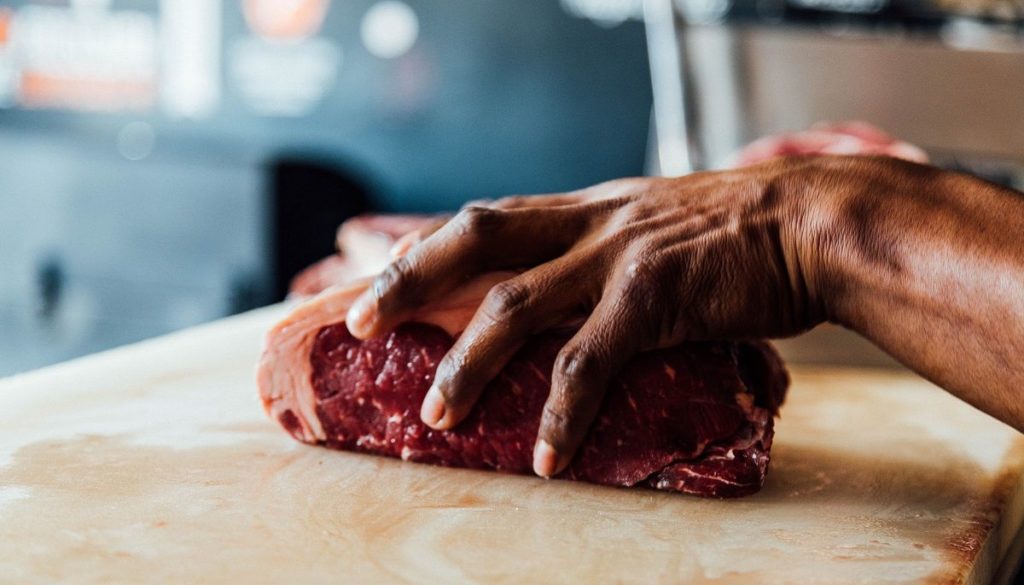
Diversity for all generations
Pierre Weill also explained us that it is important to approach the One Health concept in space (field, animals auge, people plate), as well as necessary to apprehend it in time: each generation must be able to be ambassador of one global health. And this starts at the youngest age because the first 1000 days of life are decisive to build a favorable terrain for the health. Among the various research projects in which Bleu-Blanc-Coeur is participating, the breastfeeding clinical study, piloted by the Rennes University Hospital in close collaboration with INSERM (French National Institut for the Health and Medical research) focuses on the impact of the diet of pregnant and breastfeeding women on maternal milk and especially its lipid composition (less rich in omega-3 than in the past). The older should also be in the front line to benefit from the advantages of quality food (and pleasure of tasting tasty food), that is why an other clinical study is being set up to look into the health impacts (resistance to infectious diseases, markers of degeneration – such as Alzheimer’s, ability to maintain autonomy and physical strength…) of a Bleu-Blanc-Coeur diet in retirement Home.
Sylvie DAURIAT (Restau’co) supports the integration of an increasingly wide and diversified range of Bleu-Blanc-Coeur products into the collective restoration for a good health of young and old alike. As example,Restau’co is working hand in hand with Bleu-Blanc-Coeur to create a methodology to integrate Bleu-Blanc-Coeur foods in the 50% of quality and sustainable products requested in public collective restoration by the EGAlim French law. The catering service is also an educational vector: the diversity of foods offered in the canteen gives to kids and adolescents the habit to eat diversify and encourages them to continue to make their meals along these lines.
The importance of a big diversity both in the fields and the plates was also reminded through the testimony of Anthony Berthou, (Nutritionist at YUKA) on Lyme disease: a loss of biodiversity in our territories leads to the disappearance of tick predators, carriers of the disease and this increase the prevalence of the pathology in humans. At the same time, an unbalanced diet can make it difficult to build up an effective immune terrain to self-defend against the infection. This link between diversity at different scales and health was also highlighted during the first clinical studies carried out with Bleu-Blanc-Coeur, which mainly focused on obesity and type II diabetes.
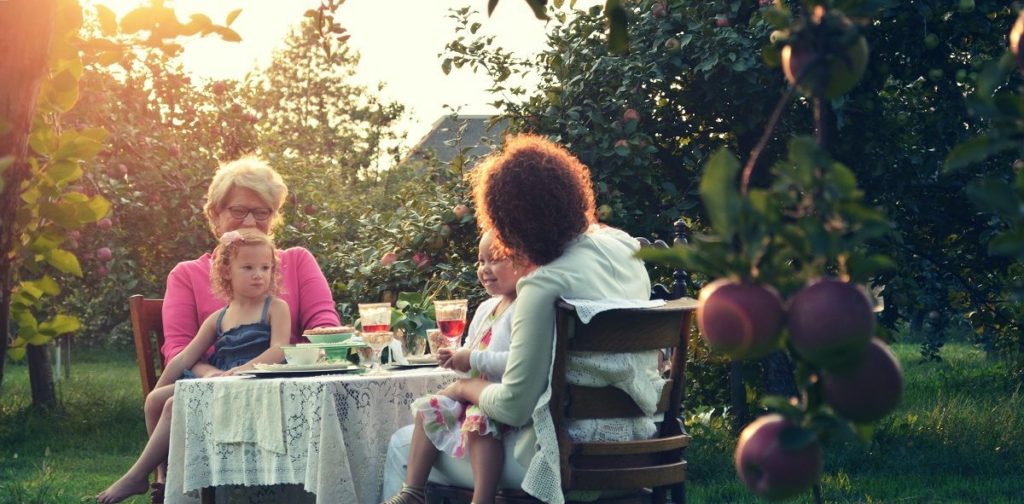
Health to resell for more confidence
Healthy food with the One Health concept has a price. Protein autonomy, for example, costs more money than importing soya from overseas countries (It is not for nothing that the soya trade has increasing eightfold since 1960); but the benefits of doing without imported soya would be numerous, as Michel DURU (INRAE Research Director of the Environment and Agronomy department) pointed out: halting the scourge of deforestation, limiting chemical inputs and supporting the local economy. There are also public health issues in limiting soya (which contains omega-6 type lipids with pro-inflammatory potential): its consumption in the form of oil has been multiplied by 1000 by Americans since the beginning of the 20th century (data presented by Joe HIBBELN), and we can not say that it has lead to a success in term of human health…
In order to succeed this transition toward a healthy agriculture, Pascal BALLE (La Nouvelle Agriculture) insisted during the round table on the importance of the establishment of a strong food governmental project listening the filed people voice “As farmers, we have the solution!”. Thierry MARX, who wants to stay militants and, in the action, also called to the common sense of consumers who need to realize that price is not value.
However, to increase willingness to pay, we need first to have confidence, and the consumer finds it increasingly difficult to give it because he is lost. We have to look for the little good music in a cacophony of nutritional information, sometimes contradictory according to Claude FISCHLER, and this requires education. It is also necessary to know how to make oneself heard based on evidence, scientific demonstrations made accessible to the greatest number of people. This is a challenge but Bleu-Blanc-Coeur tries, since 20 years this year, to take up this challenge by collaborating with research institutes, by relying on its scientific council and also by trying to popularize without taking shortcuts, to share in order to better inform.
We will remember of this session that we must not lose sight of social dimensions of food. According to Claude FISCHLER, Sociologist and Director of Research at the CNRS, we are tending toward an individualization of food practices, with more small solitary pleasure and personal choices, in accordance to the ideological requirements of each person. The notion of sharing remains central because the pleasure shared is not divided but multiplied by the number of guests. It is these values of sharing and transmission that have been conveyed by Bleu-Blanc-Coeur association since its beginning, its presidents Pierre Weill, and Bernard Schmitt, remind us that we have built this common house together, all of us different that we are (breeders, researchers, processors, health and catering professionals, consumers…)
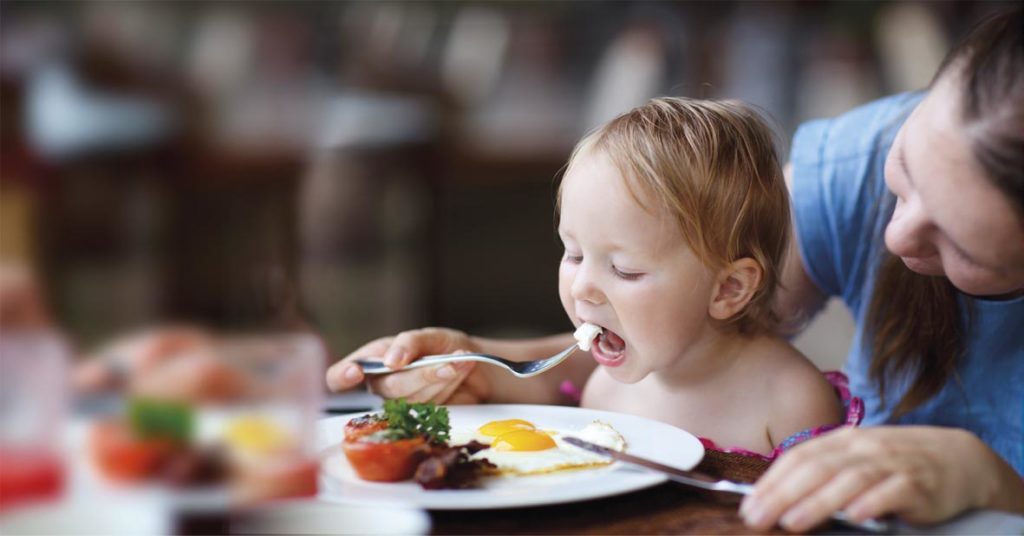





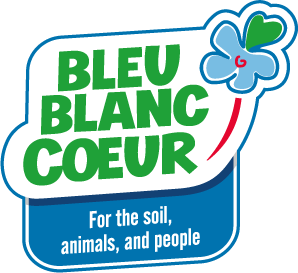
 Home
Home